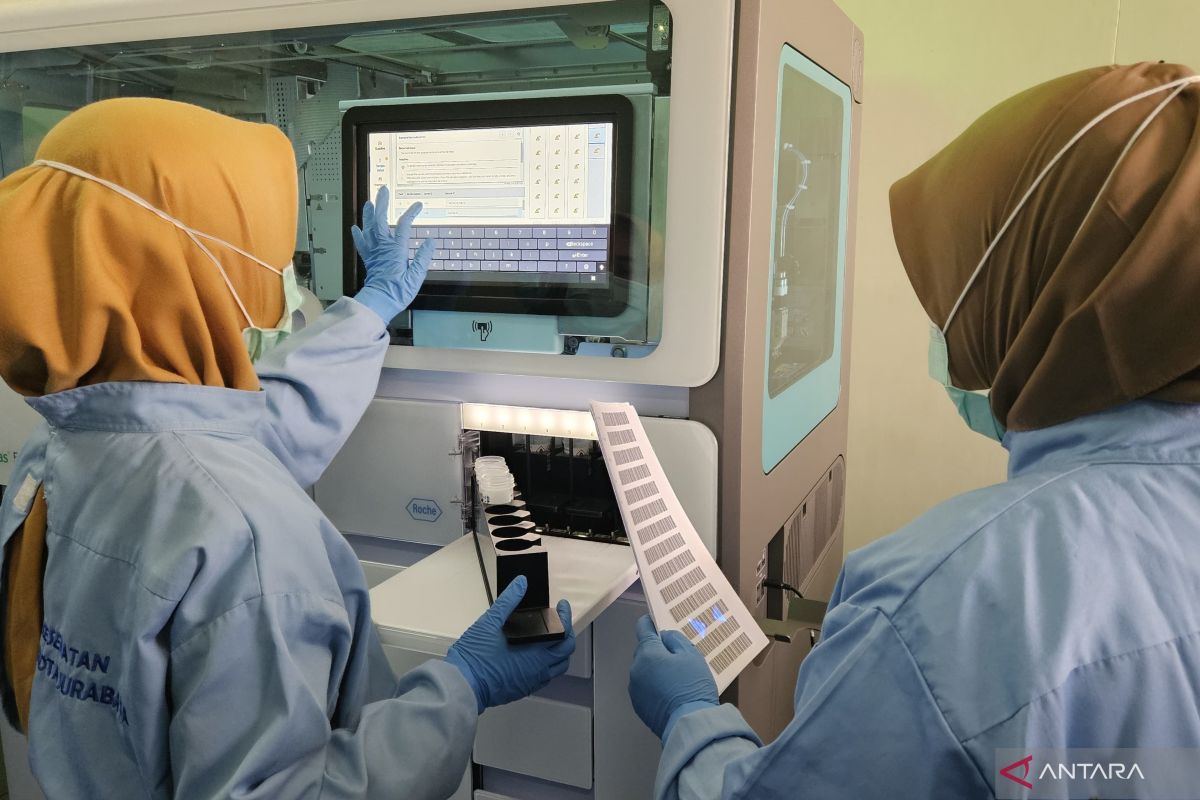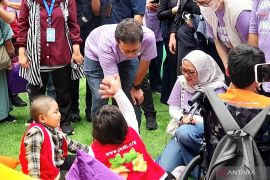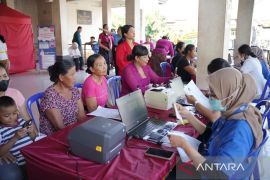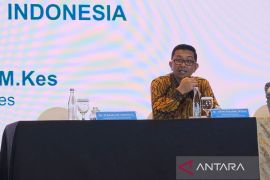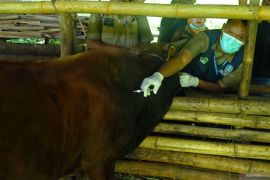The pilot has been implemented in collaboration with the Johns Hopkins Program for International Education in Gynecology and Obstetrics (Jhpiego), Biofarma, and Roche.
According to Jhpiego, the method allows women to collect their specimens anywhere, such as puskesmas or in the comfort of their own homes.
Country director of Jhpeigo Indonesia, Maryjane Lacoste, said in Surabaya, East Java, on Monday that the kits could help tackle some issues, such as the embarrassment or discomfort arising from other screening methods like IVA (Visual Inspection with Acetic Acid) and pap smear.
“On the demand side, so, you have areas where it might be difficult for women to get to healthcare, which is where self-sampling could come in as a good option with community health workers,” she said.
“Or, there may be a limited number of lab facilities, which, you know, if you set up a hub structure and centralized testing, that can be addressed,” she added.
The self-sampling kits use a swab to take samples. The kits, as well as the machine that reads the specimens automatically, have been provided by Roche. The machine, Cobas 5800, is located in Surabaya’s Public Health Laboratorium.
According to Lacoste, the initiative is in line with one of the national targets of the cervical cancer elimination program, which is to ensure that 75 percent of women aged 30–69 get screened using HPV DNA tech.
As of June 13, 2025, she said, at least 45 percent of the 5,500 Surabaya residents targeted for the self-sampling method, or 2,475 residents, have undergone screenings.
At least 95 percent of the samples have been tested in lab, with the positivity rate recorded at 4.6 percent, she added.
She disclosed that 26.2 percent of the 26.9 percent of clients who tested positive for HPV received thermal ablation.
“The others (0.7 percent) have been scheduled for additional (tests) throughout the rest of this month or the next month for care,” she added.
She said that a rural pilot targeting 923 women is also on in Sidoarjo. The screening involves health personnel taking cervical swabs, she informed.
Moreover, samples from Sidoarjo are being processed manually in a lab in Mojokerto, she added.
Jhpiego plans to report the results of the project in December 2025.
Lacoste said she expects the project to help the government formulate the best approaches for conducting cervical cancer screenings in urban and rural areas, and eventually, apply them countrywide.
More women are expected to opt for the screenings so that any lesions can be detected and treated immediately, thereby preventing them from advancing into cancer, she informed.
“The only cancer that can be prevented with early screening,” she added.
Related news: Indonesia prepares action plan to handle four priority cancers
Related news: Indonesia expands coverage of HPV immunization
Reporter: Mecca Yumna Ning Prisie
Editor: Primayanti
Copyright © ANTARA 2025
